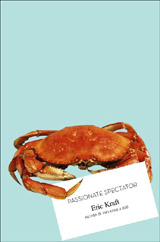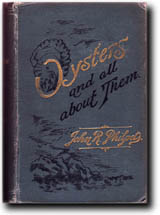
PASSIONATE SPECTATOR
YOU CAN ORDER IT
|
Reader, lo here [is] a well-meaning Book. . . . I desire therein to be delineated in mine own genuine, simple and ordinary fashion, without contention, art, or study; for it is myself I portray. . . . Thus, gentle Reader, myself am the groundwork of my book.Montaigne
FOR THE OBSESSIVE MEMOIRIST, the actual living of life is a blessing
and a curse. Diurnal existence, with its quotidian comings-and-goings,
provides the raw stuff, the basic and essential substance of the memoir,
and that fact, the utility of life as lived in providing the ingredients
for the memoir-baker, if only at the daily-bread level, makes life worth
living, but the mind is not content to eat life raw, so the stuff of daily
life is just grist for its mill, and the mind requires some time to do
its grinding. The memoirist requires some time to do the writing,
and the revising, and the re-revising and on and on until the life in the
memoir, the life on the page, has found and memorialized what wasn’t evident—perhaps
wasn’t even there—in the chaff of the lived day. I guess that’s not
quite right. I suppose the mind does eat life raw, but in the manner
of a ruminant, cycling the stuff round and round again, chewing its cud
until the mash is digestible.
WRITING MY MEMOIRS does not pay the bills. For that, I have a
number of day jobs. Perhaps I should explain my habits.
I get up early. I spend an hour and a half in my little room working
on my memoirs, listening to my crowded mind. Then I go to a gym while
Albertine takes a brisk walk around the reservoir in Central Park.
We eat a little breakfast together and read the Times for a while.
I shower and dress and go to work; that is, I return to the same little
room, but I go there to write for other people, doing contract work, writing
of many kinds, whatever comes along, whatever I can find, the hackwork
of the freelance writer. That is my day job. It makes for an
uncertain life, and for the last three years it has been—how shall I put
this—unrewarding. I’ve found enough work to fill my days, six or
seven days a week, but it hasn’t paid enough to pay the bills. Though
the last three years have been particularly disappointing, the pattern
was established as soon as we moved to Manhattan: too much work for too
little money. Before we moved, we ran a small hotel, Small’s Hotel,
on a small island, Small’s Island, in Bolotomy Bay, off Babbington, on
the South Shore of Long Island, where we lost a little money every year
for decades. We sold the place and escaped with a bit of cash, but
since then we just keep slipping downward, and little by little we have
spent the money we took from the hotel (the sweat equity we had accumulated
over all those years) and slid into debt, running up balances on credit
cards with cash advances to pay our rent and other basic expenses, and
even taking a loan from the Relief Fund of the Memoirists Guild, which
feels humiliating to me. For the past several months, we have done
very little after working hours. We just stay at home and watch rented
movies. We’ve developed these stay-at-home habits partly because
we don’t want to spend money, and partly because I finish the day so discouraged
that I don’t want to show myself among my fellow creatures. I don’t
want to be noticed. I know that my failure shows on my face.
Lately, I’ve begun to think of getting out of town. I’ve thought
about the possibility of our moving to Punta Cachazuda, Florida, where
my grandparents retired many years ago. I haven’t visited the place
since they died, but I know that the living was easy there—and cheap.
|
||||
| NO MORE THAN FIFTEEN MINUTES AGO, while I was beating myself up in
the foregoing manner, I decided that a large container of coffee was probably
just what I needed to help me get into fighting trim for the working day.
“I’m going to get the Big Coffee,” I said to Al, grabbing my keys and wallet. So much depends on chance. Once upon a time, during another period when I was feeling the weight of debt, Albertine told me that I shouldn’t worry because I had what she called “Leroy Luck.” I’d never heard of Leroy Luck before, and I accused her of inventing it to cheer me up. “It’s the same sort of luck that Jack had in ‘Jack and the Beanstalk,’” she said, “the luck of the dreamer, a boy’s luck, the sort of luck that works in the background while a boy is sitting on the sand and his thoughts are sailing out to sea.” There have been times when I’ve thought that she might be right. At the corner where I turn left to go to the delicatessen where the Big Coffee is brewed and purveyed, an enterprising homeless man named Henry sets up a card table every Tuesday and offers for sale anything he has found in the neighborhood trash that seems salable to him. On other days he sets himself up at other locations. I know that because I have sometimes seen him set up elsewhere, and because I asked him. I mentioned to Albertine, laughing as I did so, that I could probably sell a few copies of my memoirs from a folding table in a good location. “Don’t you dare,” was, if I remember correctly, her advice. This was a Tuesday. The card table was up, and it was covered with salvaged goods. I slowed as I passed, running my eye over Henry’s wares, but not making eye contact with him because I was embarrassed to be on so tight a budget that I couldn’t buy anything from a homeless guy doing business from a shaky card table. That quick, hangdog glance was enough, though. There, right in the center of the table, was a book, a book that, if its title could be believed, held just the information I needed. It was called Creative Self-Promotion. I had been shy about self-promotion. I knew it, and I was ashamed of myself for it. The man who does not ride the tide of his times is out of step, as I think someone said. Perhaps, with a handbook to follow, I could overcome my reticence and start touting myself and my services as shamelessly as all my friends and neighbors. I had the coffee money. I could buy the book instead of the coffee. “How much?” I asked. Henry shrugged. I gave him the coffee money. When I returned home, Albertine, canny observer that she is, noticed that I wasn’t carrying a container of coffee. “Didn’t you get the Big Coffee?” “No,” I said. “Henry was set up at the corner, and—” “You bought a bag of beans.” “What?” “You traded the cow for a bag of beans.” “Oh,” I said. “Maybe. I bought a book.” I displayed it. “You’re branching out?” “Hm?” “Going into taxidermy, are you?” “Taxidermy?” “Creative Self-Promotion for Taxidermists?” “For taxidermists?” I turned the book around and looked at the cover. There, below the bold title that had caught my eye, was the continuation of it, in smaller type, in italics. “I didn’t notice that part,” I said. “You didn’t notice it?” “I was a bit bedazzled, struck by the coincidence of my finding just what I think I need on Henry’s table.” “So you didn’t notice the illustration?” I did now. A man looked fondly at a table lamp with a base that seemed to be made from a stuffed squirrel, his handiwork, evidently. “I told you, I was—” I began in my defense. “—bedazzled,” she said, and because she loves me she hugged me. |
 |
||||
| BECAUSE I AM THE MEMOIRIST, I am the principal player in the comedy
that follows this preface, its groundwork, as Montaigne put it, but I am
supported—if the groundwork of a book may said to be supported—by an able
and eccentric cast. Foremost amoung them are Albertine Gaudet, Matthew
Barber, and B. W. Beath.
ALBERTINE GAUDET is my wife. I have heard her referred to as my long-suffering wife. She is sleeping beside me while I compose this paragraph in my head. We met while we were in high school, shortly after I returned from a summer in New Mexico, winging back to Babbington in a small plane that I had built in the family garage. She did not fall in love with me at first sight, though I was already in love with her before I met her, having seen her image in a drawing, admired her from afar, and listened to the praise of a friend who also loved her. When we met, she was being pursued by a number of eager boys and young men who are all now, I venture, captains of industry and finance, assiduously plundering their employees’ retirement funds. To make her mine, to get her to accept me as hers, I had to woo and win her, had to seduce and convince her. I told her that I would take care of her, promised her a rich life, attempted to stand on my head to make her laugh, and told her that when we were together she would always have a piano. MATTHEW BARBER was my high-school classmate. I sometimes claim
to have known him since we were boys in grammar school, but that’s not
true. Matthew was an enigma. If I had been asked when I knew
him whether he was the saddest boy I had ever known, I would have said
that he was. He seemed uniformly and predictably miserable, so much
the very type of the pessimist that he would willingly endure being satirized
as such. To the humorous exchanges within our group he would even
contribute an exaggerated note of gloom that never failed to get a laugh.
Not only has Matthew occupied me during my recent morning memoir hours,
but he awakened me recently, in the middle of the night, as a player in
a nightmare. In the nightmare, I seemed to be a livery car driver
or a taxi driver—
BERTRAM W. BEATH is what Matthew might have become if he hadn’t had
a conscience.
|
|||||
| STRUCTURALLY, this book is arranged to mimic a mistaken memory.
Many years ago, I found in a library a book called Oysters and All About
Them. I was fascinated by the information in the book, but its
organization intrigued me even more. The author, John R. Philpots,
had first produced a slim volume with its title making the extravagant
claim of completeness. Not long after the book had been released
into the world, its readers hastened to point out to Philpots how very
far short of “all about them” his book fell. No slacker, Philpots
got to work on a second revised edition. In it, he included the entire
first edition, unaltered, but he wrapped that edition between an extensive
preface describing the responses of readers and an extensive set of appendices
in which he corrected errors and expanded the information he had originally
provided. He sent the second revised edition into the world, and
it met a fate like that of its precursor. Readers flooded Philpots
with letters correcting and enlarging what they had found in the second
edition. So, Philpots produced a third, assembling it in the same
way he had assembled the second. At its center was the entire second
edition (and at the center of that was the entire first edition, remember)
wrapped within a preface and appendices. The edition I found in the
libary was, as I recall, the fourth or fifth. It was a fat volume,
the result of Philpots’s adding successive layers of text in each edition,
as an oyster adds layers and layers of nacre on the irritating grain of
sand that is the inspiration for its oyster. The full title of this
edition was Oysters and All About Them: being a complete history of
the titular subject, exhaustive on all points of necessary and curious
information from the earliest writers to those of the present time, with
numerous additions, facts, and notes.
I was so fascinated by the book and its organization that I asked a librarian whether I might buy it. “Buy it?” she squeaked. “Yes,” I replied brightly. “Sir,” she said, her voice icy, “this is a library, not a bookstore. We do not sell books; we lend them.” “Of course,” I said, “but if you look at the slip in the back of the book you will see that I am the first person to have borrowed it since 1911.” “That is of no consequence,” she said, “no consequence at all.” I didn’t ask again, nor did I steal the book, though I should have. A few months later, I felt the need to consult it again, and found that it was not on the shelf where I expected to find it. Had someone else taken it out? Astonishing. I asked to have it put on reserve for me. A librarian, not the one who had been so offended by my offer to buy it, looked it up in the newly computerized card catalog. “Oops,” he said, “you’re a couple of days too late.” “Too late?” “It was de-accessioned last week.” “De-accessioned?” “Removed from the shelves. Removed from the library’s holdings. Sold.” “Sold?” “Yes, at our Big Book Bargain Bonanza sale, last weekend.” “But—this is a library, not a bookstore.” “It’s a new idea of our head librarian’s—cull the collection and raise some money for new purchases by selling some of the deadwood.” “Deadwood?” “Nothing important. Old books that hardly anyone ever borrows. Out-of-date reference works. That sort of thing.” “Are you sure someone bought it?” “Absolutely.” “How can you be so sure?” “Because at the end of the sale a decorator bought everything that was left.” “A decorator?” “A guy named Bagshaw. Specializes in filling empty shelves with books. They give a room that lived-in look, you know.” “Right. I know.” I assumed that I would never see the book again. From time to time I recalled it, fondly, and with the wistfulness we feel for the things we’ve lost, and I ruminated on its unusual organization, at least as I remembered it. Then, one rainy afternoon not more than a few months before I began working on this book, Albertine and I took refuge in a bar in our neighborhood called Books ’n’ Booze. The walls of this bar are lined with shelves full of old books. With a pastis in hand, I toured the shelves, and, as you’ve already guessed, I came upon a copy of Oysters and All About Them. It was the fourth edition, in two enormous volumes, totaling more than thirteen hundred pages, but it wasn’t organized as I had remembered it, in layers, like a pearl. I suppose that, over the years, my memory of the organization of Philpots’s book became distorted by my anticipation of my own: this one, in which the text is in three layers. Thus, within the mind at least, the future can alter the past.
Peter Leroy
|
 |
||||
|
PASSIONATE
SPECTATOR | CONTENTS
|
|||||
 Here
are a couple of swell ideas from Eric Kraft's vivacious publicist, Candi
Lee Manning. Here
are a couple of swell ideas from Eric Kraft's vivacious publicist, Candi
Lee Manning.
You'll find more swell ideas from Candi
Lee
here.
|
Tip the author. You can toss a little something Kraft's way through the Amazon.com Honor System or PayPal.
|
Add yourself to our e-mailing list. We'll send you notifications of site updates, new serials, and Eric Kraft's public lectures and readings. Just fill in this form and click the send-it button.
|
|||
|
|
Copyright © 2004 by Eric Kraft Passionate Spectator is a work of fiction. The characters, incidents, dialogues, settings, and businesses portrayed in it are products of the author’s imagination and are not to be construed as real. Any resemblance to actual events or persons, living or dead, is entirely coincidental. All rights reserved. No part of this book may be reproduced or transmitted in any form or by any means, electronic or mechanical, including photocopying, recording, or by any information storage and retrieval system, without permission in writing from the author. St. Martin’s Press will publish Passionate Spectator in the summer of 2004. For information about publication rights outside the U. S. A., audio rights, serial rights, screen rights, and so on, e-mail Kraft’s indefatigable agent, Alec “Nick” Rafter. The illustration at the top of the page is an adaptation of an illustration by Stewart Rouse that first appeared on the cover of the August 1931 issue of Modern Mechanics and Inventions. The boy at the controls of the aerocycle doesn’t particularly resemble Peter Leroy—except, perhaps, for the smile. |
ABOUT
THE PERSONAL HISTORY
LITTLE
FOLLIES
|


